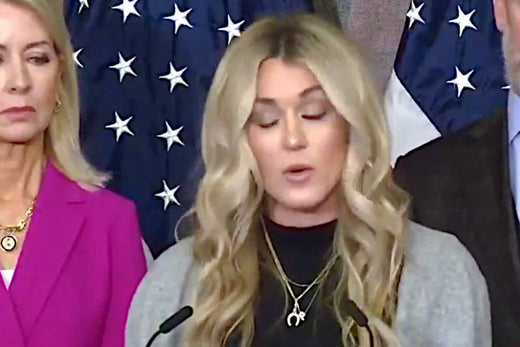
Riley Gaines, an accomplished swimmer and advocate for women’s sports, has emerged as a vocal opponent of policies allowing transgender athletes to compete in girls' sports divisions. Her stance has sparked fierce debate over fairness, inclusivity, and the balance between protecting female athletes and recognizing transgender rights. In this article, we explore the key points of contention, arguments from both sides, and the broader societal implications.
Who Is Riley Gaines?
Riley Gaines is a former collegiate swimmer from the University of Kentucky, known for her success in NCAA competitions. Gaines rose to prominence during the controversy surrounding transgender swimmer Lia Thomas, who won a national title in 2022. 1 After tying with Thomas in a separate race, Gaines began speaking publicly about her concerns regarding fairness in women’s sports.
The Core Issue: Fairness in Competition
The debate revolves around the inclusion of transgender women—individuals assigned male at birth but identifying as female—in women’s sports divisions. Proponents of inclusion argue that excluding transgender athletes is discriminatory and contrary to human rights principles. However, critics argue that biological differences give transgender women unfair advantages.
Biological Differences Debate
Studies suggest that transgender women who undergo hormone therapy still retain certain physical advantages due to male puberty, such as greater muscle mass and bone density. 2 Opponents of transgender inclusion, like Gaines, argue these biological factors undermine the integrity of women’s sports.
Conversely, advocates highlight that many transgender athletes undergo rigorous hormone therapy, which can reduce these advantages and bring their performance levels closer to cisgender athletes. 3
The Legal and Political Landscape
The issue has drawn attention from lawmakers across the United States. At least 20 states have introduced or passed legislation banning transgender athletes from competing on girls' sports teams. 4 These laws aim to protect fairness in competition, according to supporters. However, opponents, including civil rights organizations, argue such measures discriminate against transgender youth and can negatively affect their mental health.
The Biden administration has proposed amendments to Title IX regulations to ensure transgender students' rights are protected while also recognizing the need for fair competition. 5
Gaines’ Advocacy and Public Response
Gaines has testified before congressional committees and spoken at events, emphasizing what she perceives as the erosion of fairness in women’s sports. In a high-profile congressional testimony, Gaines stated, "This is about safeguarding fairness and safety for girls in sports." 6
Her stance has polarized public opinion:
- Supporters: Applaud her for speaking out and defending the rights of female athletes.
- Critics: Accuse her of perpetuating harmful narratives about transgender individuals. 7
Voices from the Other Side
Many advocates for transgender inclusion stress the importance of recognizing individuals' gender identities and creating environments where all athletes feel safe and accepted. They argue that excluding transgender girls from sports not only limits their opportunities but also exacerbates stigmatization and mental health challenges. 8
Finding a Middle Ground
Some experts have proposed creating open categories or additional divisions for transgender athletes. However, these proposals have been met with criticism, with opponents arguing they could further segregate and stigmatize athletes rather than fostering inclusivity. 9
Broader Societal Implications
The debate over transgender athletes reflects broader societal discussions about gender identity, inclusion, and equality. Balancing fairness and inclusivity remains a complex challenge requiring careful consideration and ongoing dialogue.
Conclusion
Riley Gaines' advocacy has brought renewed attention to this challenging issue. As the conversation continues, finding a solution that honors fairness and inclusivity will be key to shaping the future of sports and ensuring spaces where all athletes can thrive.
References:
- "Lia Thomas becomes NCAA champion in women's swimming," CNN.
- Harper, J., et al. "Transgender women in elite sports," Journal of Sports Medicine.
- Handelsman, D.J., "Effects of Hormone Therapy on Transgender Athletes," Sports Science Review.
- "A Record Number of States Are Banning Transgender Athletes," NPR.
- "Biden Administration Proposes Title IX Changes," U.S. Department of Education.
- "Riley Gaines Testifies Before Congress," Fox News.
- "Transgender Advocates Slam Anti-Trans Rhetoric," NBC News.
- "The Lives of Transgender People," Human Rights Campaign.
- "Open Categories Proposed for Trans Athletes," The Guardian.
Was this article helpful to you? Please tell us what you liked or didn't like in the comments below.
About the Author: Alex Assoune
What We're Up Against
Multinational corporations overproducing cheap products in the poorest countries.
Huge factories with sweatshop-like conditions underpaying workers.
Media conglomerates promoting unethical, unsustainable products.
Bad actors encouraging overconsumption through oblivious behavior.
- - - -
Thankfully, we've got our supporters, including you.
Panaprium is funded by readers like you who want to join us in our mission to make the world entirely sustainable.
If you can, please support us on a monthly basis. It takes less than a minute to set up, and you will be making a big impact every single month. Thank you.































0 comments